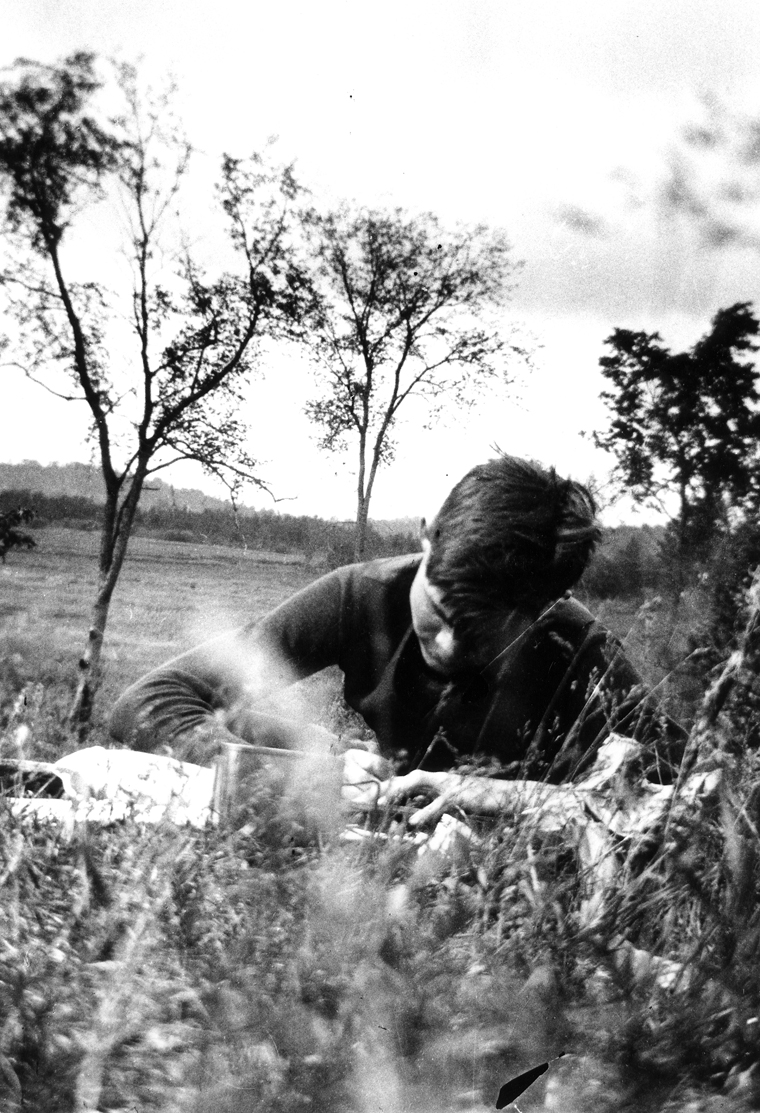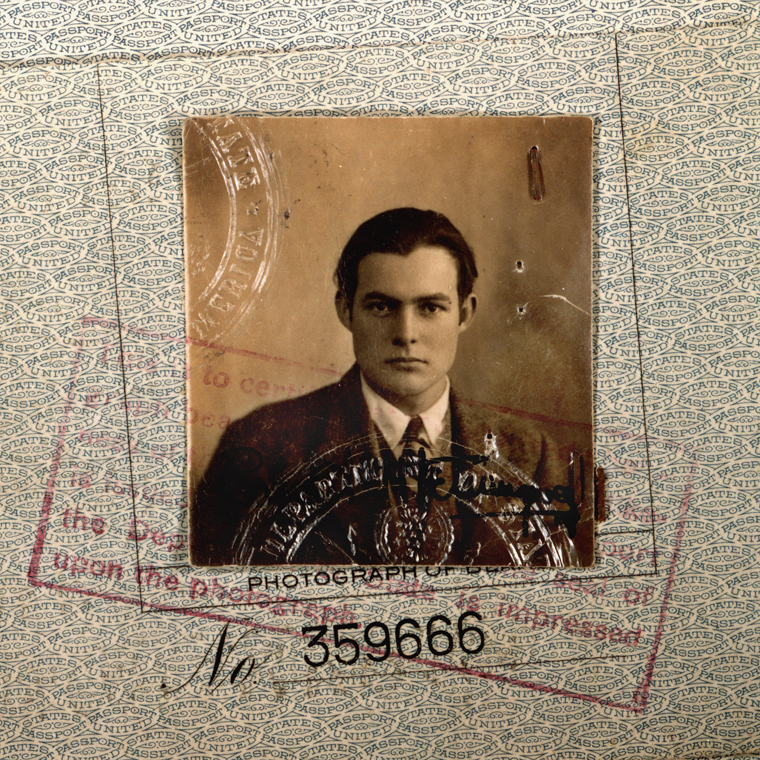After you finish a book, you know, you’re dead. But no one knows you’re dead. All they see is the irresponsibility that comes in after the terrible responsibility of writing.
Hemingway
Hemingway: “Make it alive”
You see I’m trying in all my stories to get the feeling of the actual life across — not just depict life — or criticize it — but to actually make it alive. So that when you read something by me you actually experience the thing.
Hemingway, age 25, letter to his father, March 1925
Library Way
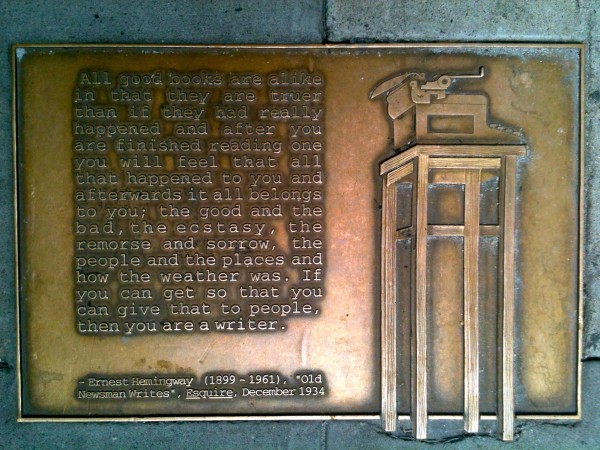
This is from a series of lovely plaques set into the sidewalk pavement on 41st Street leading up to the New York Public Library. Each includes a brief quote, some inspirational, some about books and reading. It took me twenty minutes to go two blocks. I love, also, that this plaque includes Hemingway’s standing desk (though it is rendered with an Escher-esque perspective error on the right rear leg, which is shown in front of the side brace rather than behind it). The plaque reads:
All good books are alike in that they are truer than if they had really happened and after you are finished reading one you will feel that all that happened to you and afterwards it all belongs to you; the good and the bad, the ecstasy, the remorse and sorrow, the people and the places and how the weather was. If you can get so that you can give that to people, then you are a writer.
— Ernest Hemingway (1899-1961), “Old Newsman Writes,” Esquire, December 1934
“Each book should be a new beginning”
Writing, at its best, is a lonely life. Organizations for writers palliate the writer’s loneliness but I doubt if they improve his writing. He grows in public stature as he sheds his loneliness and often his work deteriorates. For he does his work alone and if he is a good enough writer he must face eternity, or the lack of it, each day.
For a true writer each book should be a new beginning where he tries again for something that is beyond attainment. He should always try for something that has never been done or that others have tried and failed. Then sometimes, with great luck, he will succeed.
How simple the writing of literature would be if it were only necessary to write in another way what has been well written. It is because we have had such great writers in the past that a writer is driven far out past where he can go, out to where no one can help him.
Ernest Hemingway, 1954 Nobel Prize Speech
Hemingway, 1945
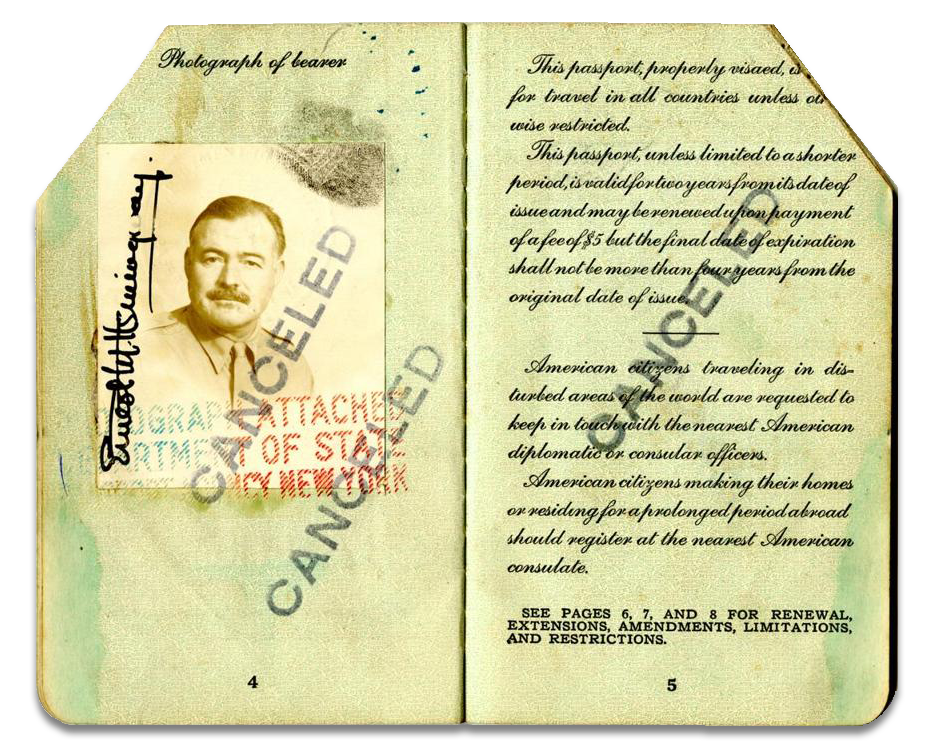
Ernest Hemingway’s 1945 passport, recently added to the Hemingway Collection at the JFK Library in Boston. Hemingway is 46 years old in this photo. Compare.
Quote of the Day
Summer is a discouraging time to work — you don’t feel death coming on the way it does in the fall when the boys really put pen to paper.
Ernest Hemingway in a letter to Fitzgerald, from Hemingway: The 1930s (via wwnorton)
Hemingway, 1916
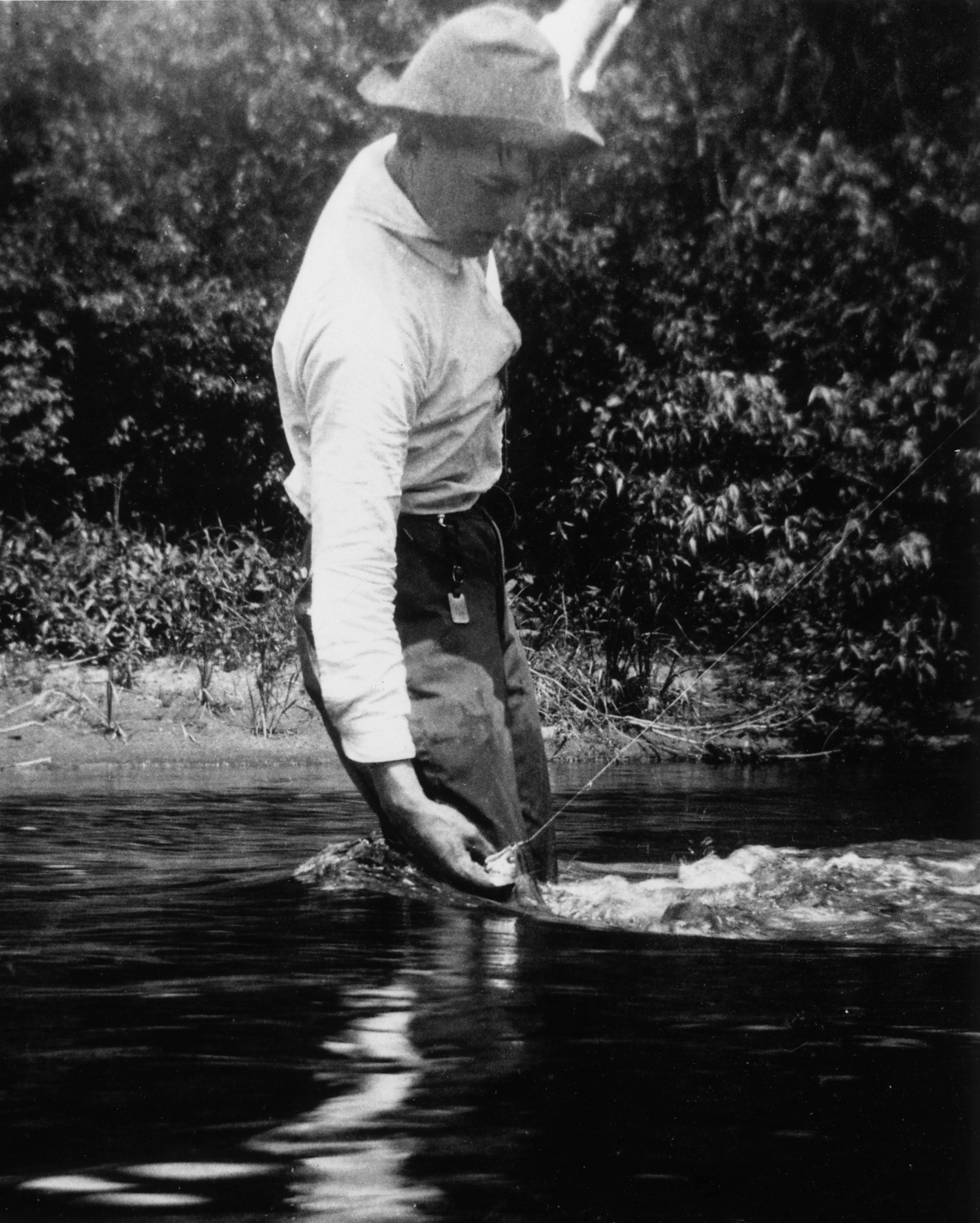
Ernest Hemingway, age 17, fishing at Walloon Lake, Michigan (1916). Below, another photo of Hemingway apparently from the same trip. Today is Hemingway’s 112th birthday. (Sources: Wikimedia Commons, JFK Library.)
Hemingway, 1923
Ernest Hemingway’s 1923 passport (detail). Hemingway is 24 years old. (Source: JFK Library, via.)
